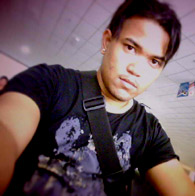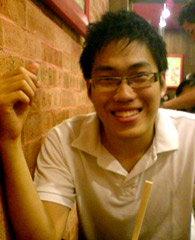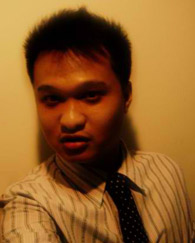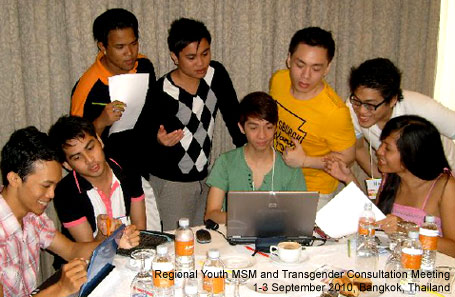The inaugural Youth Voices Count! Consultation held from September 1 to 3 was the first ever gathering to formulate a youth-oriented response for these key-affected populations. Representatives aged around 25-years and under, came from Cambodia, China, Fiji, Hong Kong, Indonesia, Lao, Malaysia, Myanmar, Papua New Guinea, the Philippines, Singapore, Thailand and Vietnam.
A worrying tread of high-risk sexual behaviour and low awareness about sexually transmitted infections among young people has been observed across the region. This has seen a steady rise in the number of HIV cases in MSM and TG under the age of 25 in many countries.
Over the three-day consultation meeting, the participants shared their experiences and deliberated over a common strategy to address issues related to HIV/AIDS for the LGBT and MSM youth. Addressing matters around sexual orientation and gender identity, as well as support for a strong youth voice, were central to the discussion. The consultation closed with a set of key youth-oriented recommendations presented to officials from the United Nations, international non-government organisations and other regional groups in hopes of shoring up support for future action.
Some of the key recommendations include:
1. More research into the needs, challenges and social complexities that young MSM and TG face, as well as those who live with HIV, to improve outreach programs, sex education curricula and overall empowerment.
2. Advocate for better sex education programs in schools and other institutions with full information on sexual orientation and gender identity, as well as reproductive health.
3. Seek representation for young MSM and transgender people in existing regional and national networks, supported by an online community for MSM and transgender youth.
4. Train health care workers on the specific needs of young MSM and TG and advocate for national health policies that adequately address these needs.
The full-version of the Final Report and complete recommendations (available in English, Chinese and Thai) can be downloaded below.
The consultation was organised by Hivos Foundation and the World AIDS Campaign. Supported by Asia-Pacific Network of PLHIV (APN+), the Asia Pacific Coalition on Male Sexual Health (APCOM), the Coalition of Asia Pacific Regional Networks on HIV/AIDS (the Seven Sisters), Fridae, Purple Sky Network and UNAIDS.
Some of the delegates from the Youth Voices Count! share their experiences below:
Shazzaidy Salleh (aka Mr/Miss Malaysia), Malaysia

At first we were strangers, but then we got to know each other. We spent time to discuss things together. Searched for common problems, looked for possible solutions and voiced out our recommended action.
I gained a lot of knowledge from this meeting. All of the participants shared a lot of stories. They opened my sights, which have now become wider towards the issues of stigma, discrimination, lack of networking, self-issues, health and welfare, and education.
Have you ever expected that such young people like us can come up with something like this? Here we are, doing the best that we can in order to voice out our thoughts regarding something serious in the world.
This is the beginning of everything. Let’s hold our hands together and let’s bring our voice to the ‘top’. Together we let them now, our voice is also important as we are the Youth of The World!
YOUTH BOLEH! (Youth can do it!)
I miss all of you so much!
Muah and Cheers!
Hendri Yulius Wijaya, Indonesia

For me personally, attending the MSM and TG Youth Consultation was a brief experience, but full of valuable lessons. In general, this consultation had three main functions for the movement of young MSM and TG in the Asia-Pacific region: to share experiences and best practices in their countries, to formulate strategic plans to address HIV/AIDS and the rights of MSM and TG, as well as to monitor and evaluate what has happened in their respective countries so far.
While it may seem to be 'heavy', this consultation was filled with many jokes, laughter, and friendship. Youth issues really brought “down to earth”. This was not just a meeting, as we were also invited to visit local organizations and examples of special clinics for MSM and TG in Bangkok. I am really amazed when visiting Silom MSM Anonymous Clinic. Imagine it, located in the Bangkok Christian Hospital, the clinic was able to provide health services that are friendly to MSM and TG and can answer their specific needs in the field of sexual health.
There is more momentum when the voices of young MSM and TG are considered in the path towards human rights, particularly MSM and TG rights in Asia and the Pacific. Youth MSM and TG are full of energy and creativity, let's join hands together for a better future!
Thu Yain, Singapore

I personally felt privileged to be part of this consultation, having a chance to equip myself with valuable lessons and information. Coming from Singapore, I had to admit that the problems faced here are not as broad as the other nations present. We have no lack of access to medical services, education is not much an issue here as well, and we do not have a huge population of MSM sex workers. Nevertheless, the main problems identified are universal - stigma and discrimination, lack of networking, lack of support and services in terms of health and education, and self-issues with oneself being a GLBT youth.
Being part of a youth group here, I feel that although Singapore is an advanced nation, we do not have services targeted purely for the GLBT youths. For example, in Hong Kong, they have a MSN support group targeted for gay men between 20 and 25. In Thailand, the MSM clinic in Silom offers free HIV testing and treatment, giving an opportunity for the young MSM, who might not have the funds, to come forward and get tested. We must know that the youths of today are the future of tomorrow. And to solve problems pertaining to HIV/AIDS, we have to engage the youths now so that future generations of youths will have a safety net in place, and grow up as responsible members of our community.
We, the youth, are part of our MSM/TG community, and we too feel the responsibility of solving the problems arising within the community, particularly to HIV/AIDS, and our well-being. I do agree that there are many programmes and support available already, but these are created and managed by the adults. Nothing is more humbling and meaningful than having youth-led, youth-centric programmes to address the issues that the young GLBTs are facing today. Thus, it is time for us to come forward and deliver the key messages and recommendations discussed to our own local organisations and reach out to the youths. At the same time, we hope that the rest of the community will give us their support. The first chapter has been written, and there are many better chapters to be penned in the following months.
Skand Amata, Nepal, Program Officer, Youth Lead Project - Coalition of Asia Pacific Regional Networks on HIV/AIDS (the Seven Sisters):
Sevuloni Ratu, Fiji, Males Empowerment Network of Fiji (MENFiji):
Thitiyanun Nakpor, Thailand, Mplus+ Project Chiang Mai (in Thai) :
Video Clips courtesy of Greg Gray, World Aids Campaign.
This report is compiled by Laurindo Garcia, Fridae’s Manila-based correspondent and HIV Programs Manager.












 Printable Version
Printable Version











Reader's Comments
I know there are treatments and people do survive but they survive and suffer greatly. unknown futures. safe sex please.
1- KTV
2- talks
3- sports
4- BBQ
5- Movies.
Often, in trying to network with other LGBT people, LGBT youths come out on their own. In doing so, they often are exposed to bad influences, ranging from stalkers to rapists who are keen in just their fresh meat. So, I thought, instead of letting them come out on their own, why not provide a supervised, safer, healthier, supportive path for them to do so?
Such groups may be formed informally by experienced LGBT counselors or social workers--preferably those who are trained, licensed and regulated by a relevant professional body. Activities should include a mix of fun, informal ones such as BBQ, sporting events, etc. and of serious, instructive events that guide them in the coming out process. Advice for them to delay penetrative sex until 18, to practice protected oral sex, and to discuss their emotional problems with a counselor could be given during such talks. I believe that beside ignorance, the greatest threat to youths is lack of reliable support from such youth groups.
1- KTV
2- talks
3- sports
4- BBQ
5- Movies.
Often, in trying to network with other LGBT people, LGBT youths come out on their own. In doing so, they often are exposed to bad influences, ranging from stalkers to rapists who are keen in just their fresh meat. So, I thought, instead of letting them come out on their own, why not provide a supervised, safer, healthier, supportive path for them to do so?
Such groups may be formed informally by experienced LGBT counselors or social workers--preferably those who are trained, licensed and regulated by a relevant professional body. Activities should include a mix of fun, informal ones such as BBQ, sporting events, etc. and of serious, instructive events that guide them in the coming out process. Advice for them to delay penetrative sex until 18, to practice protected oral sex, and to discuss their emotional problems with a counselor could be given during such talks. I believe that beside ignorance, the greatest threat to youths is lack of reliable support from such youth groups.
This is truly important for youth's in transition to adulthood to fully accept who they are and understand the dynamics of being different whilst moving on to progress in life and live it to the fullest.
Youth is not wasted on the young afterall!
Esperanto not only easy to learn but also have many good things like the propaeduetic effects http://www.lingvo.org
I am glad that China will soon have the Esperanto group of Plu.
Please log in to use this feature.